Rain, Coffee, Rain, Pizza,
Rain
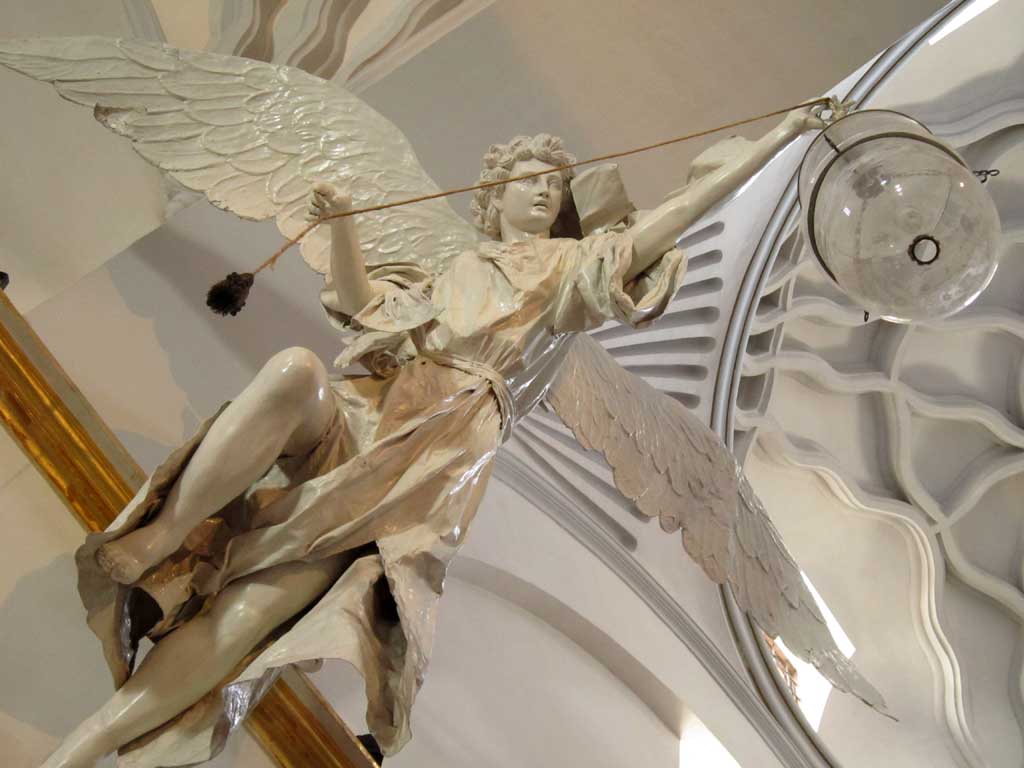
Somewhat groggy from the lack of sleep, I arrived in Santa Cruz in the wee hours of the morning. The bus terminal is 2kms from the city centre and since it was only 6am in the morning, I decided to walk the distance and embrace the fact I’d probably get lost at some point. I did surprisingly well with only the knowledge that the plaza principle was west of the terminal and barely any idea on the Lonely Planet map which streets to follow.
I’d say I’ve become extremely good at simply finding places without the aid of a map. I did this on several occasions in Eastern Europe and have been finding that I just find my way eventually in South America. Using my sixth sense I found the plaza and made my way to a hotel. The hotel was more expensive than I was expecting, and once again the Lonely Planet was wrong in their listing how much their recommended hotels should be charging. I was about to turn away and move onto the next hostel when the heavens opened up and the rain poured down.
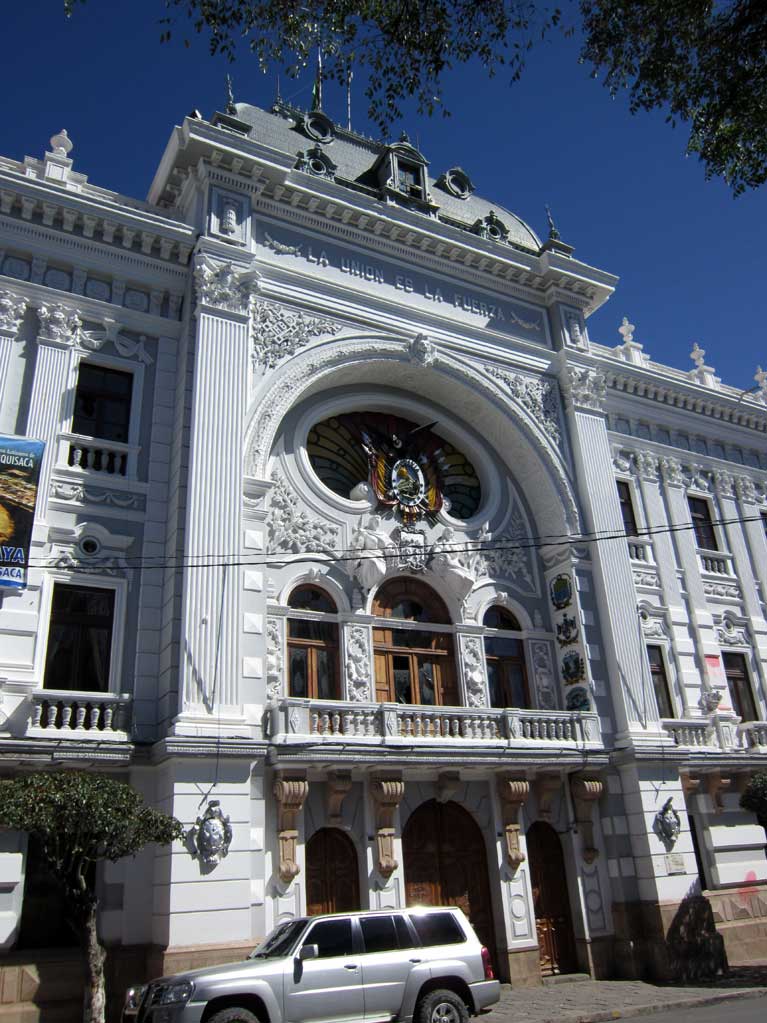
This is Santa Cruz, the tropical zone of Bolivia where they say the people are more
Brasilian than Bolivian. The rain wouldn’t let up for the 4 days I stayed here. Every day it rained, and when it rained it would be torrential. As much as I enjoyed Santa Cruz, it was the rain that made me move on. I could have easily stayed for a week if the sun stood its’ ground and didn’t let the storm clouds invade the sky.
My brain was still screaming a demand for more coffee, and my mouth agreed. Once again I found a fantastic café to quench my coffee addiction. One thing that I have noticed in all the cafes so far in Bolivia is they all have a very western café
feel to them. Or maybe it’s that western cafes have mimicked Bolivia, but eitherway they all have that rustic feel to them with wooden tables and chairs and decorated with old school paraphernalia such as 1950s radios and the likes.
It’s a great atmosphere coupled with friendly service that serves fine coffee.
Aside from my renewed coffee addiction, there is a restaurant here that makes the best pizza I’ve tasted since leaving Australia. I returned to this pizzeria every night, and it wasn’t just the pizza, I kept meeting the most interesting people here – namely Jacob and Carlos.
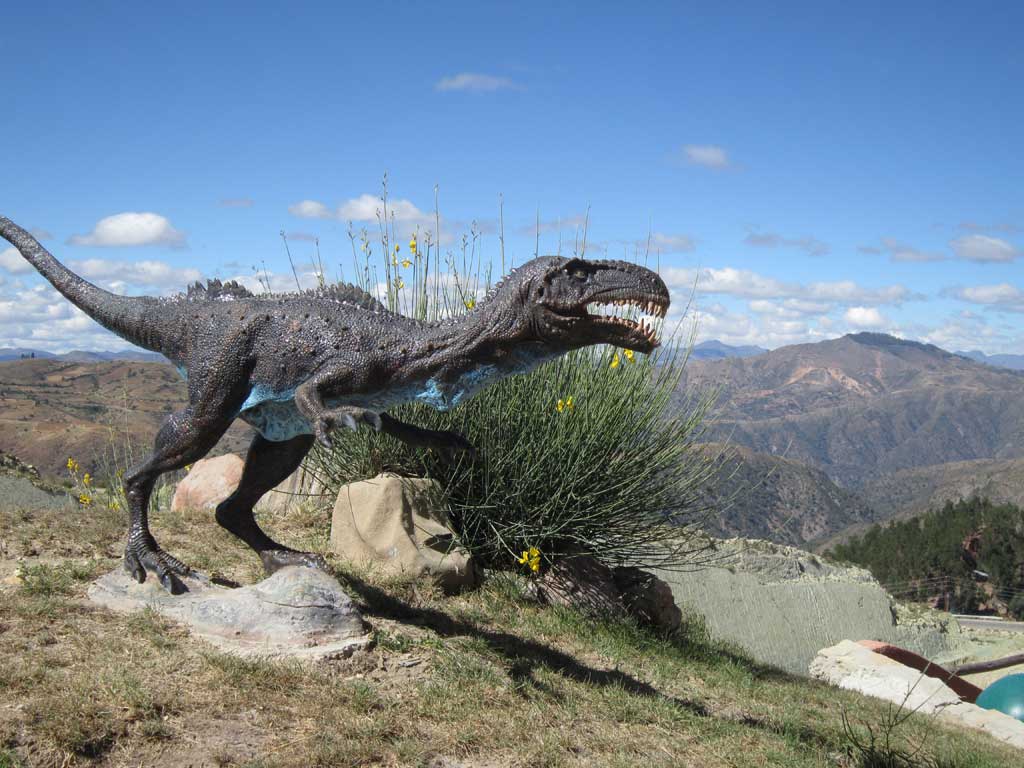
Jacob was an expat Canadian that hated the cold, thus is dislike of his homeland. He was born in Bolivia by Russian parents, which makes him Bolivian/Russian/Canadian. An odd mix to say the least. He was teaching English in Santa Cruz and we spent the night talking philosophy, aliens, global warming and how the construction business in Santa Cruz was funded by cocaine money. I was surprised when the pizzeria closed and discovered it was 1am in the morning. Good conversion and beer can do that!
On two different nights I was joined by Carlos, a local surveyor. His English was
pretty good, and he took the opportunity to practise his English and I took the opportunity to practise my Spanish. While I drank beer he drank vodka. It was
fascinating conversions into the culture of Bolivia, and his rather dislike of Columbians and Americans. It was also interesting to learn something I was told back in Trujillo, Peru, that ‘gringo’ was a term used for Americans. It didn’t mean foreigner like we’re lead to believe, but more of a derogatory term for those from the USA. You’ll notice I’ve stopped using gringo to refer to myself in these blog posts!
In the pockets of sunshine when the rain retreated briefly to gather its forces, the
protesters came out and blockaded the main road. Like many of the protesters in each city around the world, the majority of them are college students. And like all students, they’re not the brightest of people and in their blockage they lit a tire on fire which spread across the road. Frantically they tried putting it out, much to the very unamused passes by. I read in the paper later on in Sucre that the protests got out of hand and the police used tear gas. Fortunately I wasn’t around for that little episode!

The rain finally made me leave Santa Cruz and the bus to Sucre was an hour late. When we finally boarded the usual parade of food and drink vendors made their way through the bus selling their wares. The natives however had become restless and started shouting to leave. Before we finally did an interesting man stood in the corridor holding a stereo. Begging for money is pretty normal here, and
people happily give a coin or two for their plight. This large round man made his announcement, which I couldn’t understand, and pressed play on the stereo. Bad 1980’s midi music filled the bus and he started singing. It wasn’t just the fact he was dreadfully off key, but he was also cross eyed. As he swayed his head to the tune, disturbingly similar to Ray Charles, I couldn’t help but be fixated by his wandering gaze of competing eyes. Very surreal.
Soon enough the bus left the station and we were on our way to Sucre. According to Carlos, despite La Paz usurping the title of the nations capital, it was Sucre that was still the Bolivian capital to the minds of many.
Note: None of the photos in this post are of Santa Cruz. With all the rain I didn’t
actually take any, which is a shame as I would have loved to get some shots of
this city.
An Actual White City

The city of Sucre was once the capital of Bolivia, and it was here that the declaration of independence from Spain was signed. Despite La Paz now holding the title of capital, Sucre still is the heart of the countries justice system and there is certainly still a feeling that this far more beautiful city is still the true capital of Bolivia. And to be honest Sucre is a far more Bolivian city than La Paz, and so it was here that I spent a week pretty much settling down and not really feeling the urge to move on.
It would seem that each country so far has a “White City”, however Sucre is the first that actually lives up to that name. Building after colonial building are painted white with frequent extra coats of paint to keep the gleaming white beaming out. The main plaza, 25 de Mayo, was closed off for a day for a complete cleaning that lead up to the actual date of the 25th May – the 203rd anniversary of Bolivias independence.

The occasional protest march would invade the plaza and block off the streets, but they were nothing compared to motor race that shutdown all the major roads in the city. In the morning I had no idea what was going on, around the plaza the
streets had been taped off and various advertising banners adorned the surrounding buildings. I originally thought that they were preparing for the European Champions League Football final that was being broadcast at 2pm and
felt pleasantly surprised that’d go to these lengths to show it to the public. But no, after breakfast in a café run by a Belgium guy (that I went back do almost every day) I asked him what was going on. It was annual motor race that started in the plaza and made its way to the city outskirts.
The race would be yet another in the long list of “Its Bolivia!” moments, where safety it’s exactly the highest priority. When something like this is held back home they put up big plastic blocks to protect the public from accidents. Nothing like that here – a simple piece of police tape will suffice to stop a wayward motorcycle from careering off into the spectators! With the race started and the bikes roaring off up the streets, I headed to a pub called Florin that was playing the Champions League final.
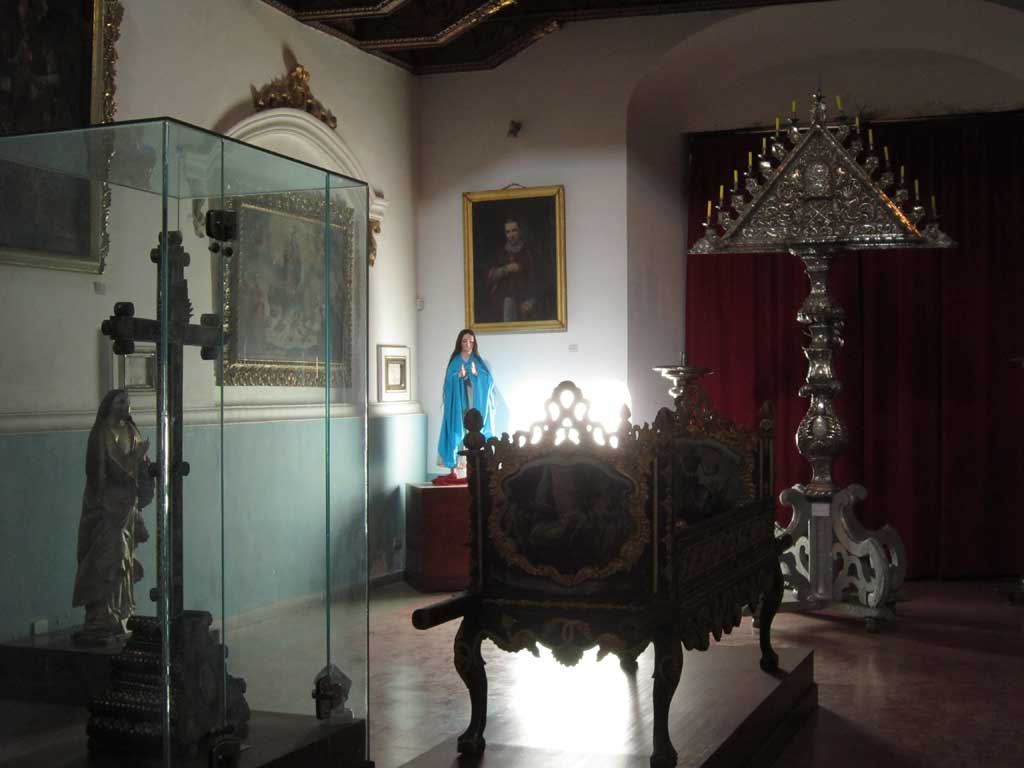
By the time the game started the pub was packed with foreigners, mainly English, Australian and German (not surprising). However there was still a healthy gathering of locals too, all barracking for Chelsea. As the game went on the bar girls weaved through the crowds expertly serving everyone drinks and food. The only time I was disappointed with the service in the pub was from the kitchen staff, who took over half an hour to make me a burger when I arrived two hours before the game when no one else was in the pub.

If there one thing that did surprise me with Sucre is the amount of foreigners. The place is positively packed with English and American students learning Spanish. I
couldn’t help but wonder why anyone would want to learn Spanish in Bolivia, when it was so difficult to understand when I first arrived. I realised then that either I was getting used to their Spanish and could now understand it, or it was just La Paz that had really poor Spanish. Eitherway, Sucre was a students city for both the countries premier universities and those wanting to learn Spanish.
Outside the city by a cement factory is the largest collection of dinosaur footprints in the world. When the factory cut its way through the limestone mountain they found that the quality of limestone was poor and stop their excavations in that particular section. As the rain ate away the soft earth from where that had cut away, the factory workers noticed something remarkable – the thousands of foot prints embedded in the now vertical wall. The find would reveal a wealth of dinosaur foot prints dating back to a mind boggling 160 million years!

The Dinosaur Park eventually sprung up next to the wall and palaeontologists recreated life size models of the dinosaurs that once stalked the South American continent. The models are incredibly life like and guide was exceedingly proud of that fact. In fact she was pretty damn near excitable when explaining the different
types of dinosaur tracks and how each different type of dinosaur would have walked. To be fair she was talking about dinosaurs, so what’s there not to be excited about!

After venturing out into the city each day I inevitably found myself finishing the day at a place called Biblocafe. This is a great little bar that served the most amazing Chilli and Nachos – you get a full bowl of chilli with pork ribs and a
basket of corn chips. Not only was the food and beer cheap they also had the local paper, which I sat down and read each evening. While my Spanish isn’t stunning in verbal conversations, I can do a pretty good job of reading it and
understanding the context of what is being written.
After several (read: too many) days of planning to leave Sucre and finding myself still there, I summed up the willpower to move on and made my way to the bus
terminal. It had been 6 months since leaving home and my mind started filling with thoughts of a simpler life of getting up, going to work, coming home. It’s
a strange thing that such an ideal would have been me ill to think about before leaving for South America, but here I was with the desire to stop and settle down to routine.
Casting those thoughts aside and with a ticket to Potosi later, I waited for the bus and prepared myself for the highest city in the world.
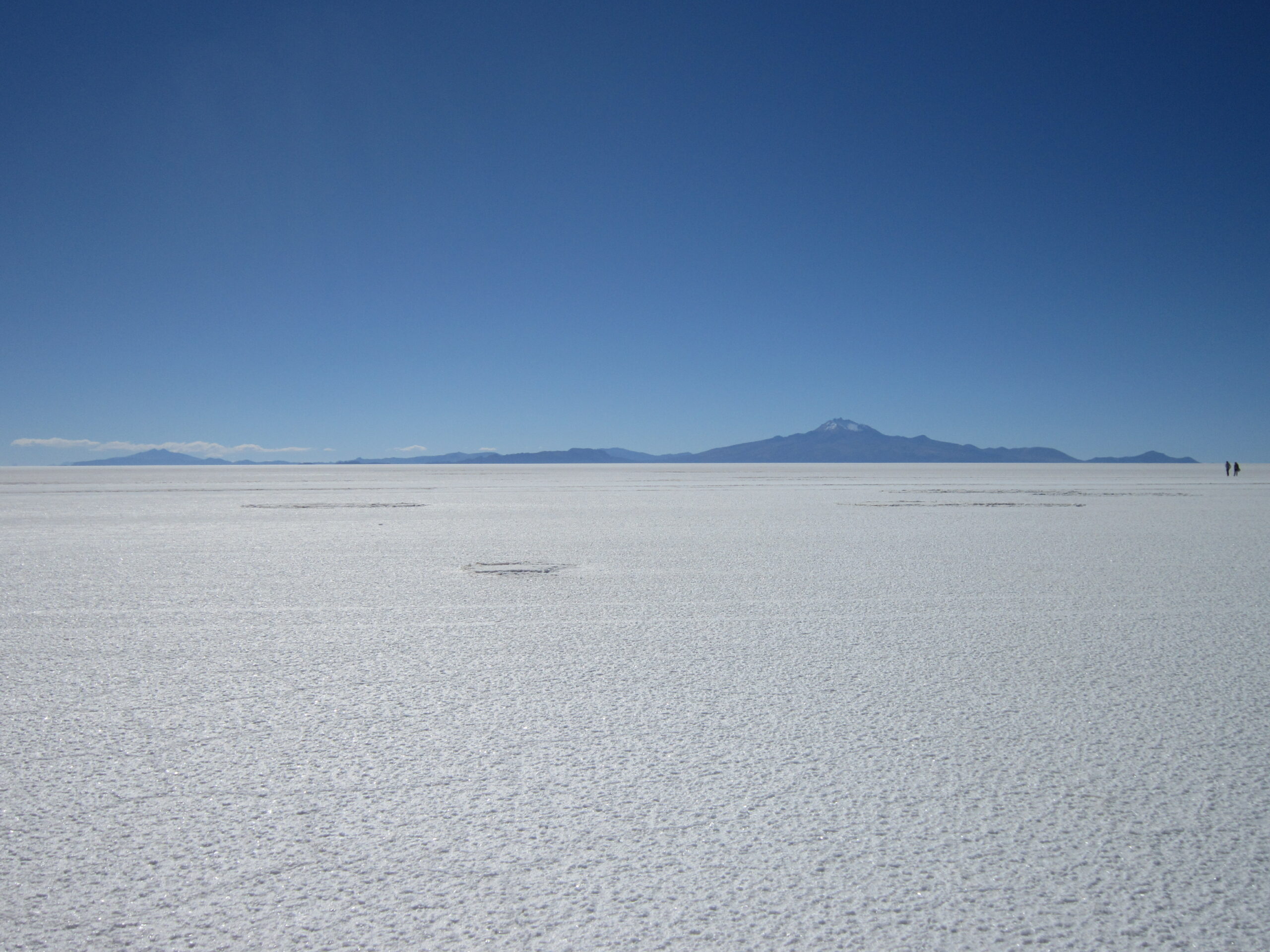

2 responses to “Santa Cruz and Sucre”
Surely you're not getting home sick?
As soon as I'm on a bus heading to the next destination I'm all good. There's just moments when you just need to stop for a while. It's been 7 months after all!